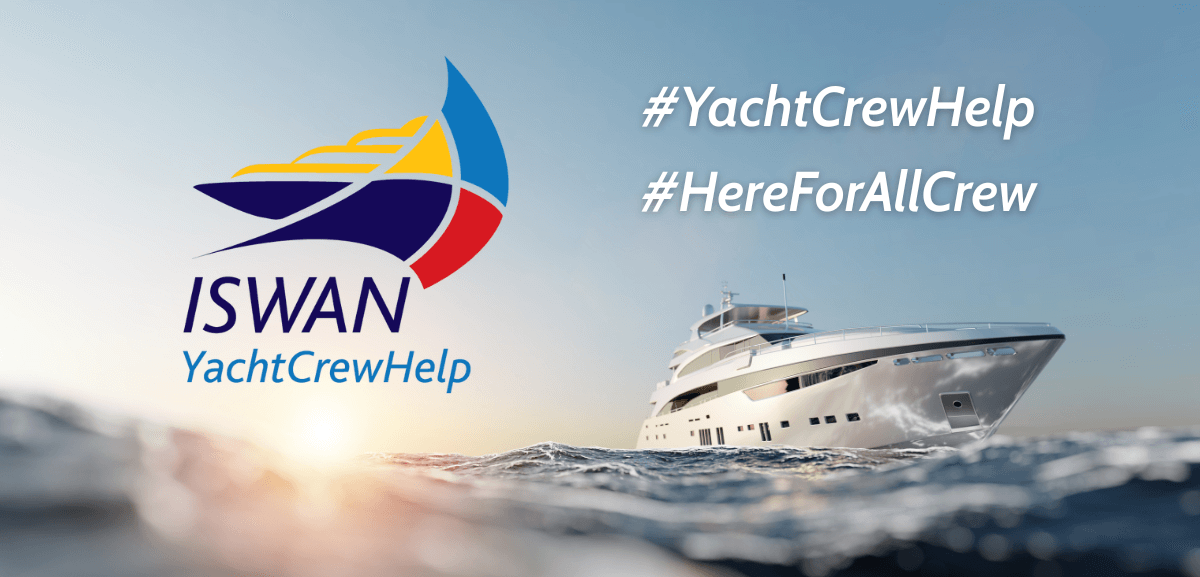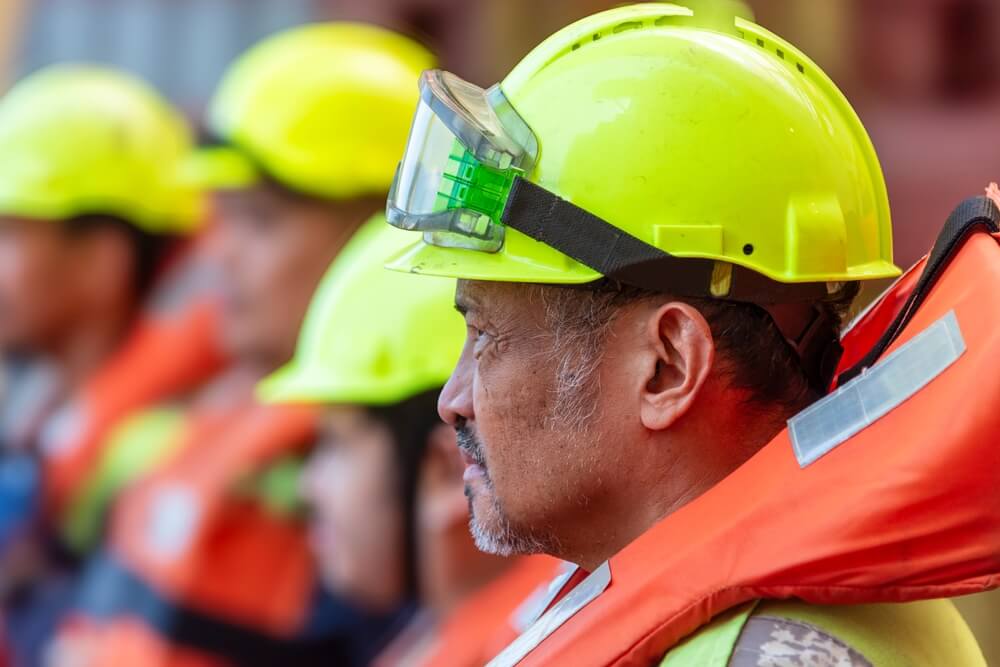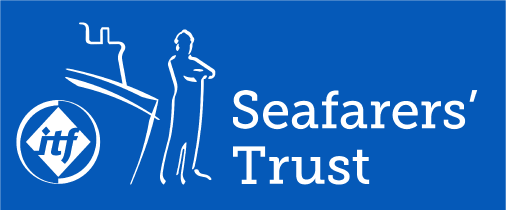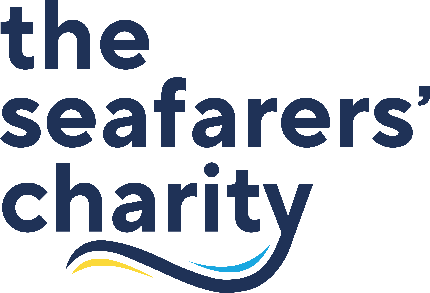Here for all crew: New campaign highlights support for yacht crew
15 September 2025
3 min read
ISWAN launches new global awareness campaign to spotlight its confidential 24/7 helpline, YachtCrewHelp.

One of ISWAN's helpline officers shares what it’s like to be the first port of call when a seafarer or family member needs support or assistance.

Each month, we share a discussion piece written by a guest author from the maritime sector who can offer a unique or interesting perspective on an aspect of seafarers’ welfare. You can join the conversation on our social media channels – LinkedIn and Facebook.
For over 20 years, ISWAN has operated a free, confidential, multilingual helpline service providing emotional, wellbeing and practical support to seafarers and their families of any nationality, 24 hours a day, 365 days a year. To complement SeafarerHelp, ISWAN launched YachtCrewHelp in 2020 to provide a dedicated helpline for yacht crew and their families. But who are the people behind this service? Who are the team members on the other end of the phone or live chat when a seafarer or family member gets in touch? Ekaterina has worked as a helpline officer at ISWAN for 10 years. She shares what it’s like to be the first port of call when someone needs support or assistance.
I often sense curiosity rising when people learn I work for a helpline supporting seafarers and their families.
There are so many questions people ask. What kind of problems do seafarers have? Do they really need help? How do you help them? These are all very good questions, and I did not have an answer for them myself until I started a job at ISWAN. Today I invite you to look at the world of seafarers through the eyes of a helpline worker.
Seafarers play a big role in our lives. Despite the technology and artificial intelligence slowly overtaking our lives, it is still humans who deliver goods, oil, gas and other vital products all over the world or take care of us when we travel by sea. They leave their families for prolonged periods of time and sometimes even risk their lives just to make sure global trade and leisure services go on. A seafarer’s life is far from the romantic or glamorous picture some may have on their mind. Long working hours, lack of rest, lack of shore leave – this is just a fraction of what you can expect working on board ships…
So what is it like working for a helpline supporting seafarers and their families? Every day we follow simple rules that help us help those miles away, far from land.
Working for a helpline is like working for an emergency service. You never know what to expect from the shift. Before I start my shift, I put myself in a ‘Hope for the best and be ready for the worst’ mindset. A new contact (this is how we refer to calls and messages) can come in at any time – right at the start or right at the end of a shift, or in the middle of the night. And it can be about absolutely anything – sudden death, a life-changing injury, relationship problems, safety concerns, a personal crisis…the list goes on and on. Sometimes it is just someone needing a listening ear after a bad day. It doesn’t mean I sit nervously waiting for bad things to happen, but I am prepared for them.
My shifts always start with a handover with my colleagues. If there is nothing serious or urgent, I start catching up on emails and make sure all the communications channels for seafarers and their families are working well. Everybody is different; some prefer a telephone call, others choose email or a WhatsApp chat. Whatever it is, we rely hugely on the internet, and we want to give a wide range of options to seafarers and family members who want to contact us. Next, I check if I have any tasks or assignments for the shift. I might go back to cases that I dealt with recently to see if there is a development. It’s important to feel balanced during the shift – feeling calm but alert at the same time. It can go to extremes from being very quiet to very busy, when one call can put you in a state of emergency.
The ability to multitask is one of the core skills for a helpline worker. Often, we deal with multiple cases at the same time. We have to prioritise cases and deal with the most important ones first (for example, if someone is going through a crisis or someone’s life is at risk). If the workload becomes a bit too much, here comes the next rule…
You may never think of it, but our helpline is a group of individuals who are connected and rely on each other. Our team is like a living organism. We all have different skills and experiences. Sharing them is what makes us provide a good service to our callers. Our helpline runs 24/7, which means it never stops working. The team is always informed about top priority cases, so our callers don’t have to repeat themselves when they contact us again. If one team member is dealing with a very stressful case, colleagues on the shift are there to support them or share the load. We are multilingual – our team speaks over 12 languages, including Tagalog, Hindi, Russian, Spanish and Arabic.
As helpline workers we come across a wide range of topics: from maritime law to conflict on board, from port facilities enquiries to depression and suicidal feelings. We don’t claim in-depth expertise on any topic, but we always do our best to assist. If we don’t have an immediate answer to the question, we never say no, but instead we do research so we can give the best possible answer. By doing this, we learn together with seafarers. If we can work with them to take the next step, such as by providing information or referring to the organisations that are able to help, it counts. As an example, if a seafarer has a medical concern, we will try to understand what it is first so we can assess the urgency and point them in the right direction. Each new case helps us grow, which means we can help other seafarers if they find themselves in a similar situation.
Most might think of a first aid kit as a box packed with essentials to treat physical injuries. How about a first aid kit for your mind? Health encompasses both physical and mental wellbeing. Injuries and traumas that happen to our minds can affect all aspects of our lives, and that’s why we are here to help. We regularly hear from seafarers who have experienced trauma, are going through a crisis or are contemplating taking their own life. These are serious situations that need immediate intervention. We have protocols and a standard procedure to follow in such cases. Each team member is also regularly trained in providing emotional support, so every time a seafarer or family member contacts us, they get to speak to someone prepared to deal with any situation in a non-judgemental and caring manner.
A part of my job is to learn how to look after myself. Dealing with traumatic cases can lead to a high level of stress or burnout, which eventually will prevent me from providing good care to others. In order to support others, we need to make sure that we are well enough to do so. As an example, I always make sure I get enough sleep before my night shift. It makes me feel prepared to meet any challenges that may come my way. It’s also incredibly helpful to know that I am not dealing with the tough stuff on my own. Everyone in my team has a clinical supervisor, and every month we have reflective practice sessions where, as a team, we talk about difficult cases, reflect on how they were dealt with and discuss what could have been done differently.
As you have probably noticed, my job can be stressful and exhausting at times. Irregular work patterns, day and night shifts mixed up, tricky cases involving seafarers or members of their families who may be vulnerable or struggling… We don’t work with seafarers face to face. They are nautical miles away, connected to us by the modern miracle of the internet. But each one of our team feels their pain as if it is our own. Each case is a special one because seafarers trust us with their most serious concerns, personal battles and dilemmas. So why am I still doing this job after so many years? The answer is simple: it’s very satisfying to know I can make a difference. It makes my day when seafarers say they feel better after talking to us. It’s great to hear when vulnerable seafarers get their rights protected. It’s a huge relief to learn when a seafarer contemplating suicide makes the decision to live. Of course, there is so much more work to do, but we celebrate every victory, whether it is big or small.
If you are a seafarer or family member and you need our support, you can contact us here.

15 September 2025
3 min read
ISWAN launches new global awareness campaign to spotlight its confidential 24/7 helpline, YachtCrewHelp.

26 August 2025
1 min read
Alina Prylipko discusses whether the shipping industry’s social sustainability actions are truly informed by seafarers’ needs and priorities, and shares some fascinating insights from her PhD research with the World Maritime University.

22 August 2025
2 min read


